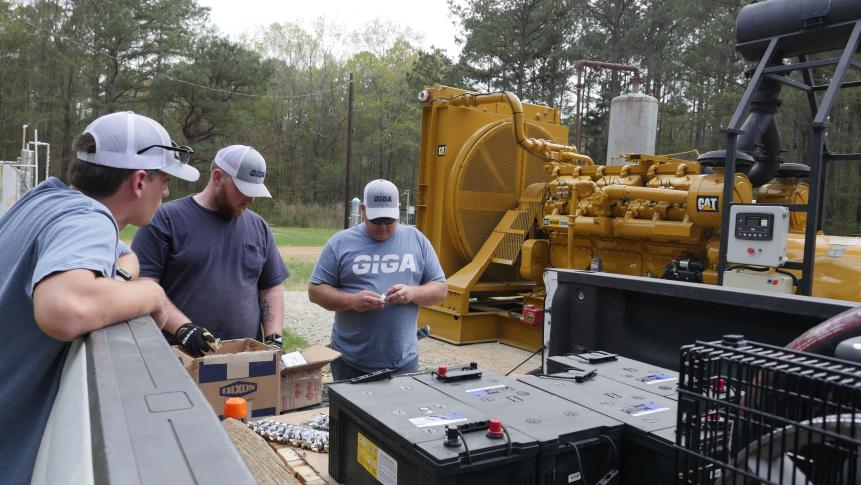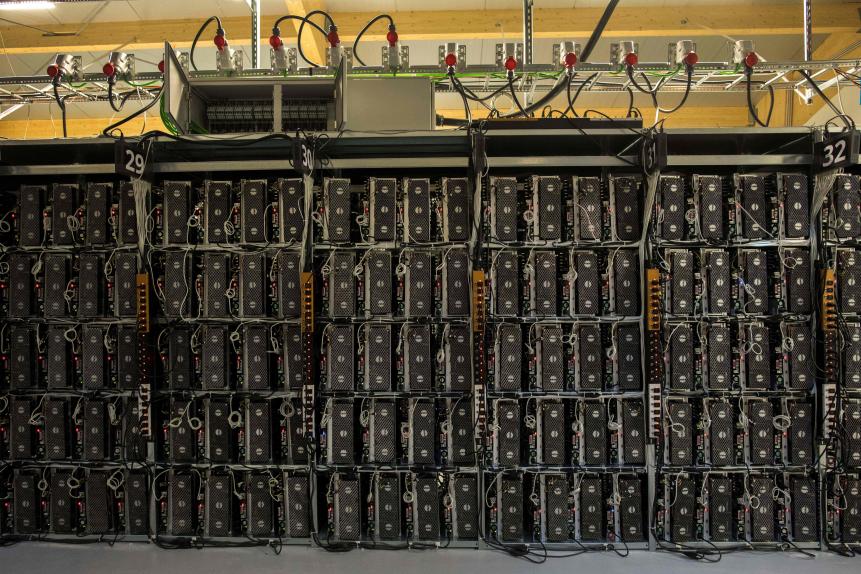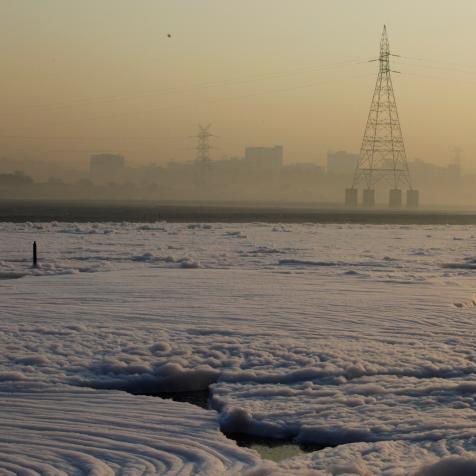
Westend61
Bitcoin Code Switch Could Clean Up Crypto’s Dirty Image
Big technology and finance corporations are being asked to back ‘Change the code not the climate’ by groups including Greenpeace USA and the Environmental Working Group. They say rewriting the way Bitcoin is coded could tackle its huge carbon footprint and negative impact on global warming.
Digital coins minted on the blockchain network are currently mined by ‘proof of work’, where each new Bitcoin is created by computers solving a mathematical problem to verify the currency’s new transactions. The first to solve that problem is rewarded with Bitcoin, but the energy used by all the other competing computers is simply discarded.
Bitcoin miners’ race to verify new transactions and mint currency requires vast amounts of electricity. Mining operations often run hundreds of computer servers to solve the equations needed to verify transactions and win Bitcoin.

FRANCOIS PICARD
Connection by Giga Energy of a gas generator to a bitcoin mining unit near Linden, Texas on April 4, 2022. - What to do with the gas that emanates from oil wells too isolated to be connected to pipelines? Until now, methane gas has been flared or released into the atmosphere, creating pollution and greenhouse gases. Now, a young American company is proposing to transform it into electricity on-site in order to extract bitcoins.
Critics say switching to ‘proof of stake’ instead would use nearly 100 percent less power. Rival cryptocurrency Ethereum already consumes less energy than Bitcoin but estimates that a switch in transaction validation to proof of stake will reduce its total energy use by 99.95 percent.
Proof of stake relies on ‘validators’ who lock in their own crypto investments to verify transactions on the network. Winners are chosen on the amount and length of time of their stake, not processing power, making the whole process much less energy-intensive.
China was once the global hub of Bitcoin mining. More than half the world’s operations were based there before a government ban saw many relocate to US states including Texas and New York. Seeking out renewable energy sources like hydropower, wind, and solar, some mining operations have turned to fossil fuels.
Crypto investors have targeted coal-fired plants and natural gas generation. Bitcoin has resurrected fracking companies and dirty coal-burning plants that may have gone bankrupt as the US economy switched to renewables. And the cryptocurrency’s proof of work method has led to a mountain of electronic waste as miners burn through servers to maximize their chances to earn more.

HALLDOR KOLBEINS
Mining rigs of a supercomputer are pictured inside the bitcoin factory 'Genesis Farming' near Reykjavik, on March 16, 2018. - At the heart of Iceland's breathtaking lava fields stands one of the world's largest bitcoin factories at a secret location rich in renewable energy which runs the computers creating the virtual currency.
Heavy computer hardware, excessive electricity, and fossil fuel use associated with Bitcoin could raise global warming above sustainable limits, past two degrees Celsius, say, scientists. Changing the way the blockchain works would drastically cut its impact.
“No matter how you feel about Bitcoin, pushing those with the power to ensure a code change will make our planet and communities safer from the destructive impacts of climate change,” said Greenpeace USA chief program officer Tefere Gebre.
The US is now the epicenter of global Bitcoin mining activity. Individual states like New York have created a bill to ban mining operations that use electricity from fossil fuel plants. Lawmakers are also calling for intensive research into proof of work to assess the currency’s environmental impacts. Pressure is building for Bitcoin to improve its green credentials.


















